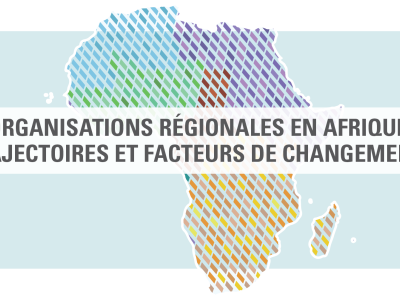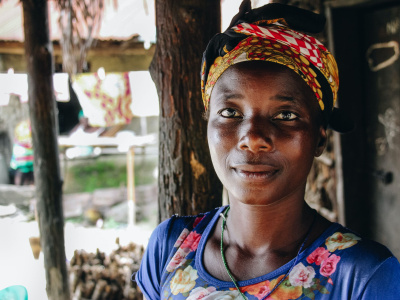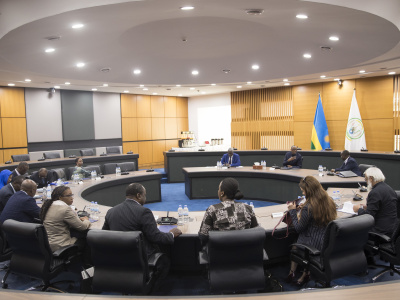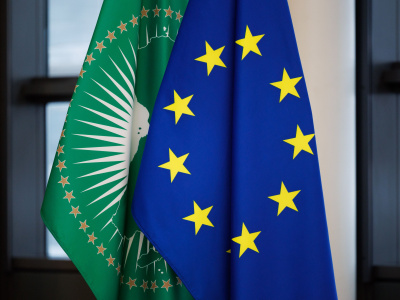
Linda McAvan - Former Member of the European Parliament and Chair of the European Parliament Committee on Development
Dear future Chair of the development committee,
The EU set an ambitious global agenda this parliamentary term, from signing the Sustainable Development Goals (SDGs) to getting agreement on financing for development in Addis Ababa, standing up for gender action and leading the charge to combat climate change in Paris. The challenge for the new European Parliament, which coincides with the crunch years for implementation of these policies, is to make sure that the EU and our global partners keep the promises we all signed up to.
We know the next mandate will not be without challenges. Yes, we had some successes, but the last five years also saw more and more attacks on multilateralism. From the Brexit referendum to the US withdrawing from the Paris Agreement under Trump, and the refusal of some countries to endorse the Global Compact on Migration, populist movements across the world are trying to take apart the multilateral system that underpins global policies like development.
Institutional renewal: Development policy
When the new European Parliament Committee on Development (DEVE) forms in July, there will be four immediate priorities. The first is confirming the new Commission. DEVE will be most involved in the hearings for the Development and Humanitarian Aid commissioners, but we should also be trying to influence the policy plans of others, in particular, the new High Representative for Foreign Policy, the Trade Commissioner and the Energy/Climate Change Commissioner, as their work has a direct bearing on development. MEPs should look for candidates who believe in multilateralism and commit to delivering the SDGs and Paris agenda. The second priority is to work closely with the Committee on Budgets (BUDG) to secure a good overall settlement for development policy in the seven-year EU budget. Key here will be to uphold increases in the budget and maintain the integration of the European Development Fund in the budget. The third priority is to open negotiations with the Council on the new Neighbourhood, Development and International Cooperation Instrument (NDICI). I hope DEVE will defend what was agreed by this Parliament, namely proper funding for development, limits on diverting aid into migration and security policy and putting the SDGs and pro-poor policies at the heart of the EU’s external policy. A final priority is to work hard with the women’s committee on the Gender Action Plan (GAP), improving the EU’s approach to deliver for women and girls, stopping “ticking boxes” exercises and pushing back against attacks on sexual and reproductive health rights by the Trump administration. Here I hope that the new DEVE will build on the work already done.
The SDGs
To achieve the SDGs by 2030, we need to see rapid advances in the next five years. The formation of the new committee in July will coincide with the meeting of the UN High-Level Political Forum on Sustainable Development (HLPF), where the EU will report on its progress towards the SDGs both inside and outside the Union. In September, DEVE and colleagues from other committees will be attending a second HLPF, where heads of state will report on overall progress on the SDGs. These two UN events give the EU the opportunity to show real leadership on the SDGs and to defend the concept of multilateralism. DEVE has worked hard to bring other European Parliament committees on board to push for the SDGs to be implemented universally. We have set out proposals for an annual ‘whole EP’ review system of the SDGs, to put pressure on the Council and the Commission to deliver, and I hope the new Parliament will support this approach. Last year the United States put the SDGs ‘under review’, so the EU needs to speak up loudly for the SDGs and global governance, and find allies among other countries to do the same.
Moving beyond aid: Africa and post-Cotonou
There has been a lot of focus on Africa during this Parliament – and rightly so. We need to form a genuine partnership, beyond donor-recipient relationships and discussions about migration. While member states remain committed in theory to increasing aid to 0.7% of GNI, the chance for a massive increase in development aid looks slim. So the EU will have to look beyond aid if it wants to help deliver the SDGs.
One way forward is through new funds, such as the European Fund for Sustainable Development (EFSD), that channel investment to poor countries. The jury is still out on whether these funds can deliver the extra financing needed by the poorest and most fragile countries. But to see real development, Africa definitely needs jobs and private sector involvement. We also need more work on tackling illicit financial flows and tax evasion.
While Africa is important, we must not neglect our partnerships with other developing countries. A replacement for the Cotonou agreement, with our ACP (African, Caribbean and Pacific) partners, will come back to the table for ratification by DEVE and the European Parliament in the autumn. The EU could be doing much more in all its trade relationships with partners to improve sustainable development in those countries, and along supply chains to the EU. After the success of the conflict minerals laws in this Parliament, mandatory due diligence rules should now target other commodities, like cocoa and the garment sector. Similarly, we should make support for climate action a key component of any new trade or partnership agreements with third countries.
Humanitarian aid
The term ‘humanitarian aid’ has mainly been used in situations of protracted crises, often man-made. At the first World Humanitarian Summit in Istanbul policy changes were proposed to better address protracted conflicts. We now need to implement them, starting with a funding mechanism for the development-humanitarian nexus and better protection of humanitarian workers, who have been increasingly targeted in conflicts. Last but not least, during the past five years we have seen some appalling cases of sexual misconduct by a small number of aid workers. NGOs and EU institutions have been putting in place new systems to detect and enable whistle-blowers. This too must be monitored by DEVE.
So, a lot to do! The global challenges of climate change and extreme poverty call for an EU that is serious about meeting its commitments and that leads the world in finding new solutions and a common way forward. DEVE can play a key role in helping the EU meet those challenges. I wish you every success in that endeavour.
About the author
Linda McAvan, Former Member of the European Parliament
Chair of the European Parliament Committee on Development 2015-2019
Read the full magazine issue








